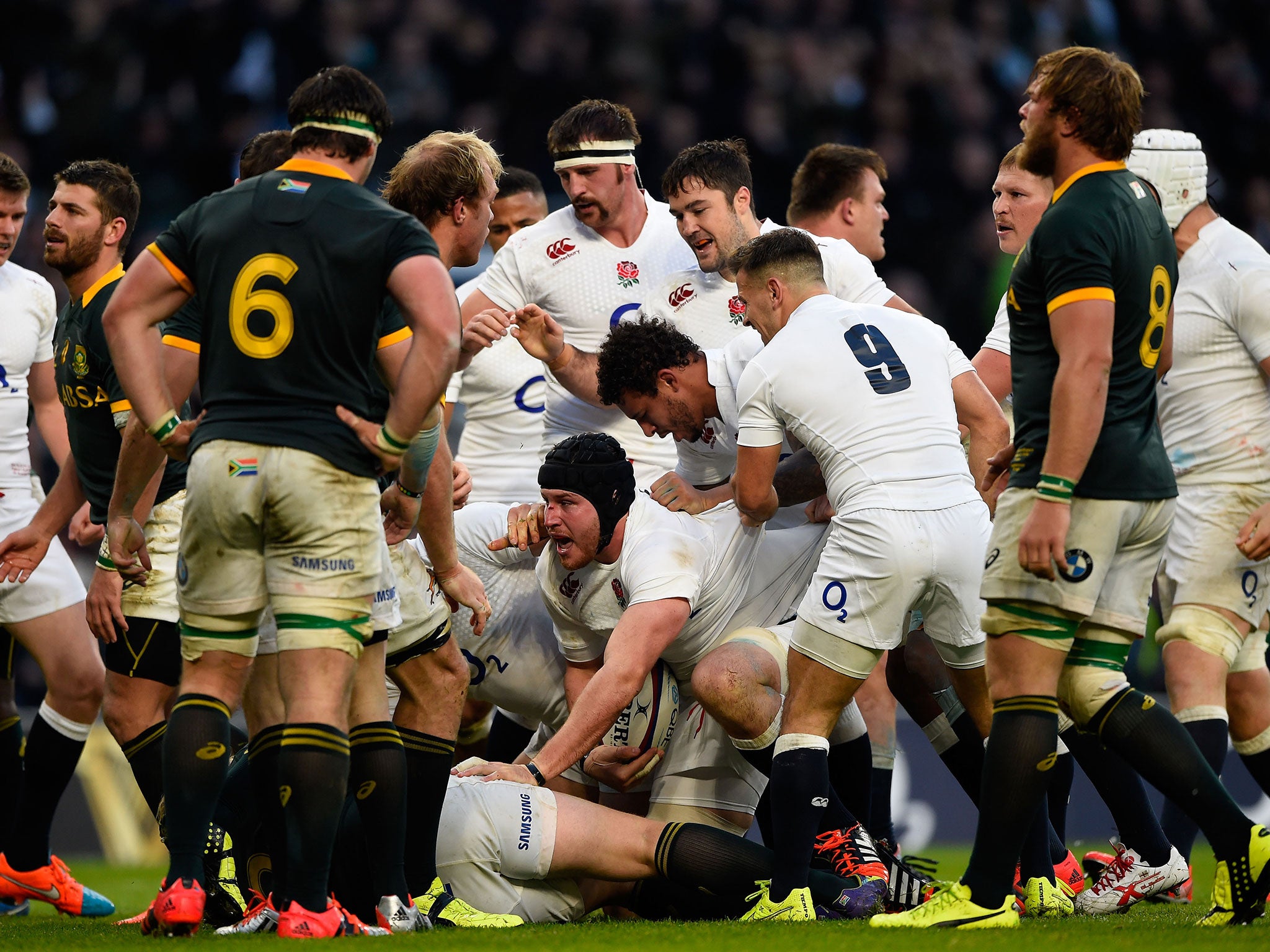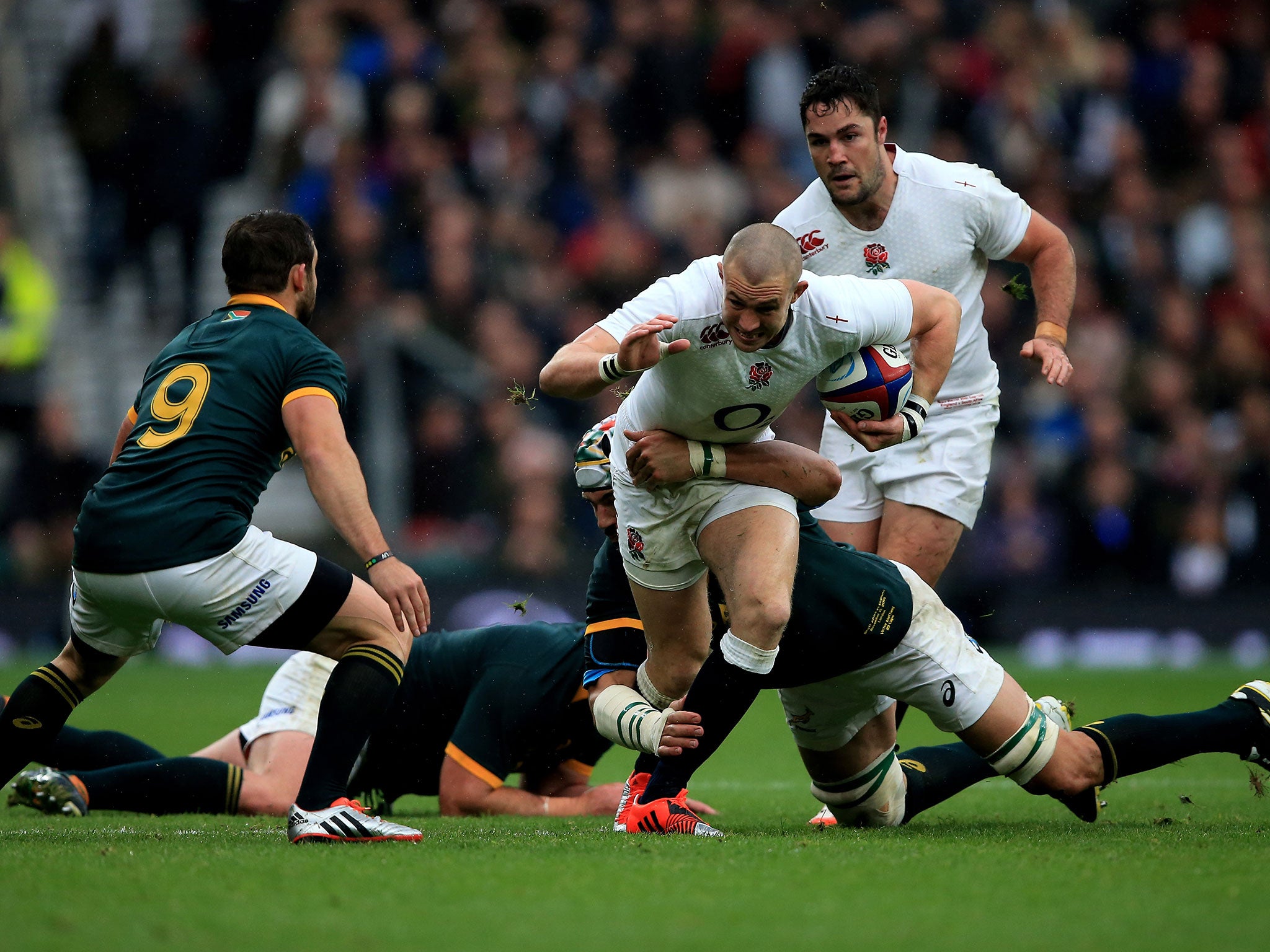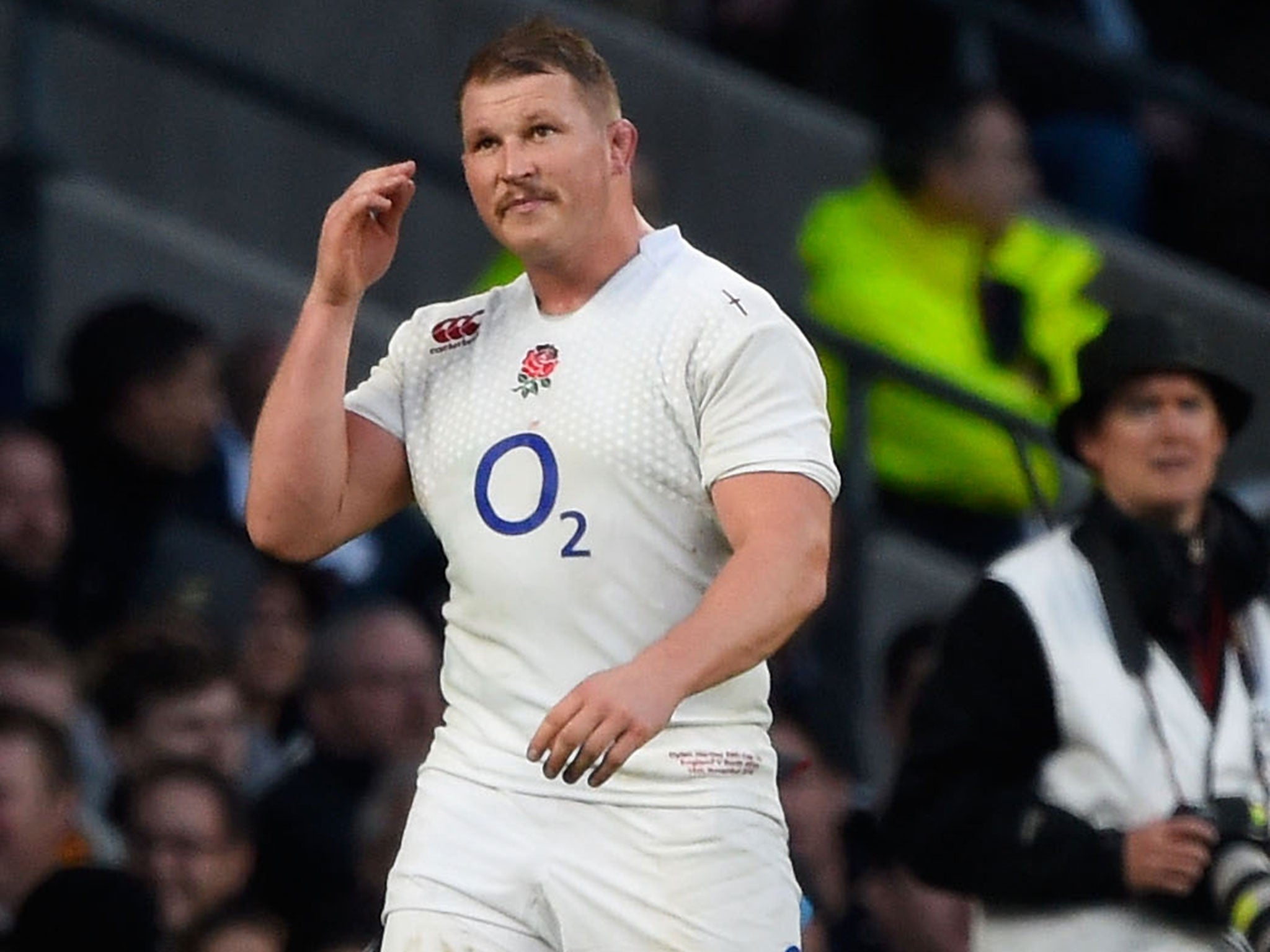England vs South Africa: England still a long way away
England 28 South Africa 31: Another narrow defeat cannot hide gulf between Lancaster’s side and the big beasts from the Southern Hemisphere

Faith is the most expensive commodity in world sport. For Stuart Lancaster and the England rugby team he is moulding in his modernistic, conscientious and clinical image, it is ebbing away with alarming speed.
They do not mint medals for a series of narrow defeats. No anthems are composed for a beaten side, taunted by the scoreboard’s illusion of proximity to victory. The result is all that matters, regardless of the intelligent, inclusive culture through which the challenge was undertaken.
England will not meet South Africa, or New Zealand for that matter, unless they reach the World Cup final on October 31 next year. Optimistic assertions they are destined to do so are being revised. Since the global sporting calendar is becoming compressed, they have only 10 more matches before a defining tournament kicks off, and they must begin to meet inevitably exaggerated expectations.
It is too soon to panic, but Southern Hemisphere superiority is a reality which must be confronted with greater realism. Lancaster will make wholesale changes against Samoa at Twickenham on Saturday and insist that victory over Australia the following week sets the tone for next autumn’s group game against the Wallabies.
Yet as he spoke, in his quiet but urgent manner, of familiar frustrations and elusive virtues, he began to sound like a man whose search for positives is becoming too deeply ingrained. Reasoned arguments merely sounded like stage-managed excuses, played on a tape loop.
He acknowledged repeatedly that “we need to be smarter”. He promised: “We will not lose our nerve.” He reasoned: “These white-hot pressure games are about learning who can and who can’t deliver at this level.”
The tone of his voice suggested he knew that, for once, process could not be prioritised over performance. His quiet revolution had to shout its relevance from the roof tops but merely managed a brief bellow. He didn’t get the 10 per cent collective improvement from the All Blacks’ defeat he demanded.
Though a remodelled England team has emerged over the past two years, forged by the clinical precision of Lancaster’s much-proclaimed elite environment, they cannot continue to be portrayed as a work in progress. When opponents like Jean de Villiers, the Springbok captain, speak warmly of them as “a team on the up” the diplomatic niceties are distinctly double-edged.
The 2015 World Cup is a once-in-a-generation opportunity for English rugby and it will not take much for the #CarryThemHome hashtag to be replaced by something more prosaic and unforgiving, like #KickThemOut.
Lancaster needed some of his human investments, such as Danny Care and Owen Farrell, to pay off in the form of a first win over the Springboks for eight years. Since they singularly failed to do so, home truths must be addressed. As captain Chris Robshaw said: “It’s a big week for us now. We do get frustrated with getting close in these games.”
The players, at least, have an unflinching self-awareness. They do not indulge in hard-luck stories or seek compensatory support from match analysis, which proved they dominated possession and missed only two tackles in a relentlessly confrontational contest.
In the words of full-back Mike Brown: “It was exactly the same as last week’s defeat against New Zealand. The same sort of areas cost us. Discipline was poor, rucking wasn’t good enough and we gave them easy points. It is not good enough.”

Lancaster is exposed by the cult of the coach, which he has helped to cultivate by his distinctive approach. The TV cameras captured him inscribing inner thoughts in a black hard-backed notebook; the slow shake of his head revealed the train of those thoughts. He had the distant look of a man whose brain was on fast forward, between error and solution, risk and reward.
All too briefly, it seemed as if a new-age team would be rescued by old school methods. The driving maul is an acquired taste, akin to a charge of Roman soldiers, undertaken beneath interlocked shields.
It was suited perfectly to a mild, wet afternoon, when the capacity crowd found its voice and restored a little of the reputation shredded by last week’s allegations of homophobic abuse. Two examples of the dark art, which led to England tries in quick succession, were received rapturously.
When South Africa replied in similar fashion with the ultimately decisive try, Schalk Burger ripping the ball out and peeling off around the blindside in a fluid, forceful movement before plunging over the line, old forwards purred with a pleasure beyond national allegiance.
They were similarly inclined to forgive Dylan Hartley for being sin binned for making deliberate contact with the inconveniently situated leg of Duane Vermeulen with his right boot. It was something he would have got away with in a different age, with a different agenda and perspective.

Now the attention is unrelenting. Pressure will be applied gradually, but remorselessly. Already seditious muttering about the wisdom of Lancaster’s six-year contract is being amplified. He has the freedom to be himself but is imprisoned by the oldest instruction in the book: Just win.
Join our commenting forum
Join thought-provoking conversations, follow other Independent readers and see their replies
Comments
Bookmark popover
Removed from bookmarks